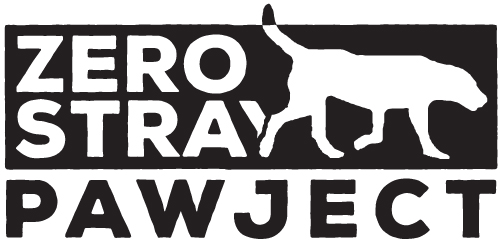600 million STRAY DOGS and CATS live on the street worldwide, ACCORDING TO THE WORLD HEALTH ORGANIZATION.
GREECE ALONE IS ESTIMATED TO HAVE almost 3 million stray and homeless dogs and cats, in a country with 11 million inhabitants. This is HUGE!.
Stray pets are a man-made problem. Every stray pet was once someone’s pet, or the puppy or kitten of someone’s pet that was abandoned.
Former pets who were abandoned now risk being hit by a car, dying from a preventable disease or from the multitude of other dangers on the street. Furthermore, stray pets can pose a public health and safety risk to communities with a large number of stray pets and are bad for tourism and the general perception of a community and country. The existence of stray pets cannot be allowed to perpetuate. The complexity of the problem requires a systemic solution.
Particularly for dogs, there are 3 sources of stray dogs:
1. LOST DOGS
2. ABANDONED DOGS
3. DOGS BORN STRAY
LOST DOGS
One source is a dog that had a home and became lost. Responsible dog owners should take care that their dogs live in a controlled environment and cannot wander off. Responsible dog owners also should make sure their dogs have collars with dog tags that bare the name and phone number of the owner, so that in the unlikely event a dog runs away others can help re-unite the lost dog with its owner. Finally, responsible dog owners should have their dogs microchipped and registered in local and/or national databases; this will ensure that, even if the dog's collar is removed, the dog will always carry the owner's information and any vet or animal rescue center can use a chip scanner to identify the dog's owner and re-unite dog and owner.
ABANDONED DOGS
Unfortunately the most common cause is the intentional abandonment of a dog by its owner. The typical situation is families that rush to get a puppy not being fully aware of the responsibilities of becoming a dog owner. An immature (and illegal) reaction to a family realizing they no longer want to keep their dog, is to abandon it. The common "solution" is to drive the pet to a remote location and drop it off so that it can't find its way back home.
Another variation of abandonment involves the unwanted pregnancies of owned female dogs. These pregnancies are the result of female dogs not living in protected environments (e.g., are chained outside to "protect" the property or are allowed to roam freely outside the home) coming into contact with un-neutered male strays or owned but likewise free-roaming males. Unwanted pregnancies result in puppy litters that, after initial efforts to get them adopted fail, are abandoned. Municipal trash collection points are common repositories of unwanted puppies. Most of these 'trash puppies' have low survival rates, partly because they still need to be nursed and cannot survive on human food waste as adult strays would.
DOGS BORN STRAY
Many dogs are simply born stray. In most cases, they are first or second generation stray after their parents or grandparents were previously abandoned. Un-neutered female dogs are ‘in heat’ twice per year and, if impregnated, will give birth every six months to an average of seven puppies, depending on their size and breed. One female can therefore produce in average 14 puppies per year. While not every puppy will survive the harsh conditions on the street, the cycle of stray born dogs continues with every dog being abandoned.
THE SOLUTION?
There is only one solution: RESPONSIBLE PET OWNERSHIP
Owners have a duty to provide sufficient and appropriate care for their pets, microchip and ideally neuter, or prevent from uncontrollable breeding.
This "duty of care" requires owners to provide the resources (e.g., food, water, shelter, health care and social interaction) necessary for an individual pet to maintain an acceptable level of health and well-being in its environment. The FIVE FREEDOMS serve as a usual guide:
Freedom from Hunger and Thirst
Freedom from Discomfort
Freedom from Pain, Injury or Disease
Freedom to Express Normal Behavior
Freedom from Fear and Distress *(embedded in Greece’s animal welfare legislation since 2021)
The existence of even a few irresponsible pet owners requires the community to take action, such as the efforts that Zero Stray Pawject is supporting.
See Our Mission


